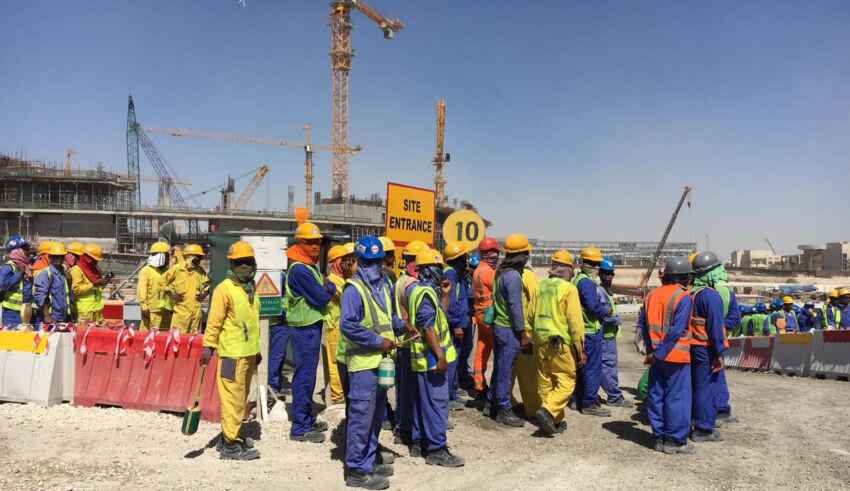
As the world is gearing up for FIFA 2022, the event not only would be the most celebrated sporting event after the Pandemic but also will find its place in history for exposing the horrendous Kafala system. Previously the international community often focused on armed conflict and terror in the Middle East, however, recently, the plight of migrant workers under the Kafala was highlighted. The Kafala system is a sponsorship system practised in many Middle Eastern Nations whereby the state gives local individuals or companies sponsorship permits to employ foreign labourers, often without very little or no supervision. Historically the Kafala system is have found to exploit these labourers who have limited rights in the host countries and have resulted in many human rights violations around the globe. However, it is interesting to note that these labourers often endure these violations without any resistance in the hope of earning the bare minimum and sending it home to their families back in their home countries.
Most often, the Kafala system ties the employee’s residency status and work permit to the sponsor, where the sponsor is the only person who can renew or terminate the visa. There have been instances where the sponsor holds onto the passport of the employee and denies them the chance to exit/enter the host country, change or end employment. Entrusting a worker’s legal status to the sponsor instead of a state/government authority creates an imbalance in power that is often exploited. Violating the condition laid out by the sponsor with permission often constituents an offence, irrespective of the nature of the violation of the contract, such as fleeing persecution. In reality, the Kafala system mirrors modern slavery in the 21st century. Many gulf countries are heavily dependent on expatriates for their workforce, and many in many of them, foreigners outnumber the locals. Despite this, foreign workers, especially in industries such as construction, petroleum mining, domestic work and service industries, are treated in an inhumane manner.
Qatar’s response
When Qatar’s Kafala system was exposed to the international community, the state was quick to rectify the lacunas in the system. However, the response had little to do with Qatar’s empathy for the migrant workers. Qatar was threatened with withdrawal of the FIFA tournament. Also, the economic and political sanctions and embargo placed on Qatar by Saudi Arabia (and by virtue of that, many other Arab nations) had put the State in a position where it cannot disappoint the international community. While it is safe to say that the reforms to the system were self-motivated, the reforms still failed to dismantle the Kafala system in its entirety.
While many Arab countries claim that they have systems in place to ensure the Kafala system does not exploit migrant workers, they are rarely implemented or enforced in reality. While many do not know about the exploitation of the system before arriving in these host nations, migrant workers often ‘consent’ to work in these inhuman conditions because of their economic hardship. However, consent must not be an excuse to propagate torture and bonded labour.
The solution
Many Arab nations are often not party to ILO Conventions and International Human Rights Instruments that prohibit forced labour. Many Western nations who are quick to point out human rights violations in poorer Asian and African nations have often turned a blind eye to the Kafala system, which is centred in the richer Arab world which also houses a majority chunk of crude oil. In order to strike at the root of the Kafala system, which is inherently exploitative, the international community must exert pressure on these nation-states and place sanctions on countries that fail to reform these existing laws. Since implementing these laws would pose an issue in light of sovereignty, the United Nations must refer the matter to the International Court of Justice for an Advisory Opinion on the legality of the Kafala system under international law. However, true reform is only possible if the migrant population is educated about their rights under international human rights law and rescued and rehabilitated properly. But, many NGOs and human rights organisations that carry out these activities are black-listed and prevented from operating in these states. The onus now falls on the origin countries that must strictly ensure that their citizens are not exploited in other nations and must enter into a Memorandum of Understanding to tackle the issue. Similarly, fear of boycotting sporting, cultural, or educational events or exchanges in these countries may prevent inhuman treatment meted out, especially since many gulf nations are considering broadening their international presence. While welcoming these nations, the message should be loud and clear. There is no room for the oppressive Kafala system in the 21st century.
By The European Institute for International Law and International Relations.















